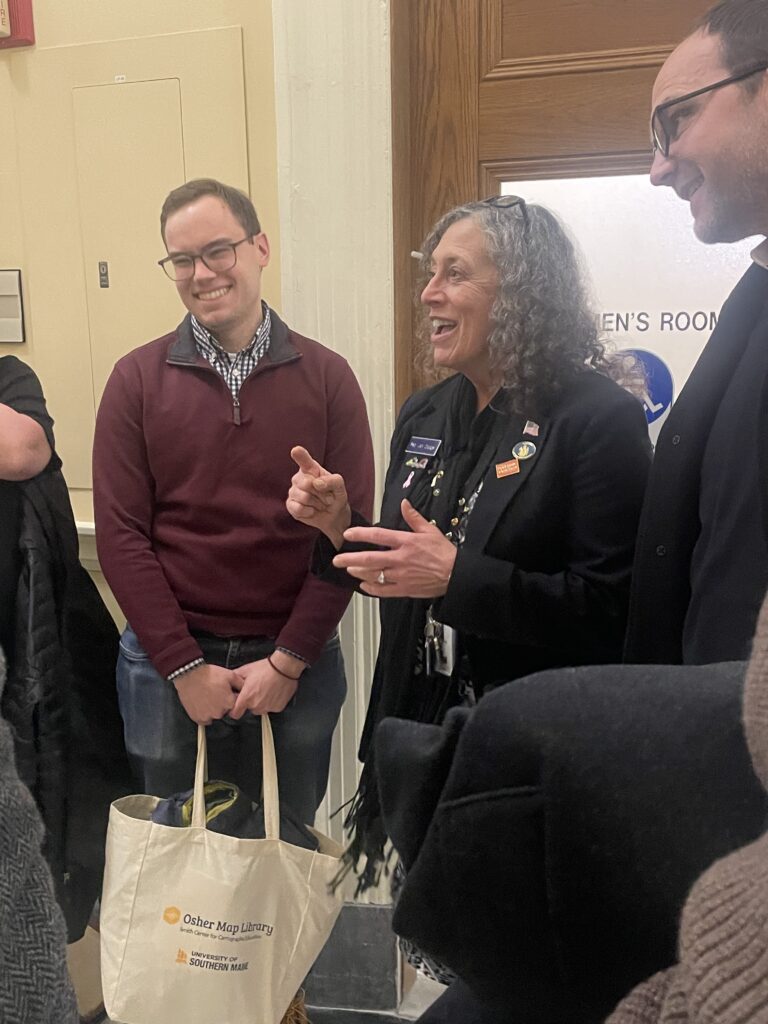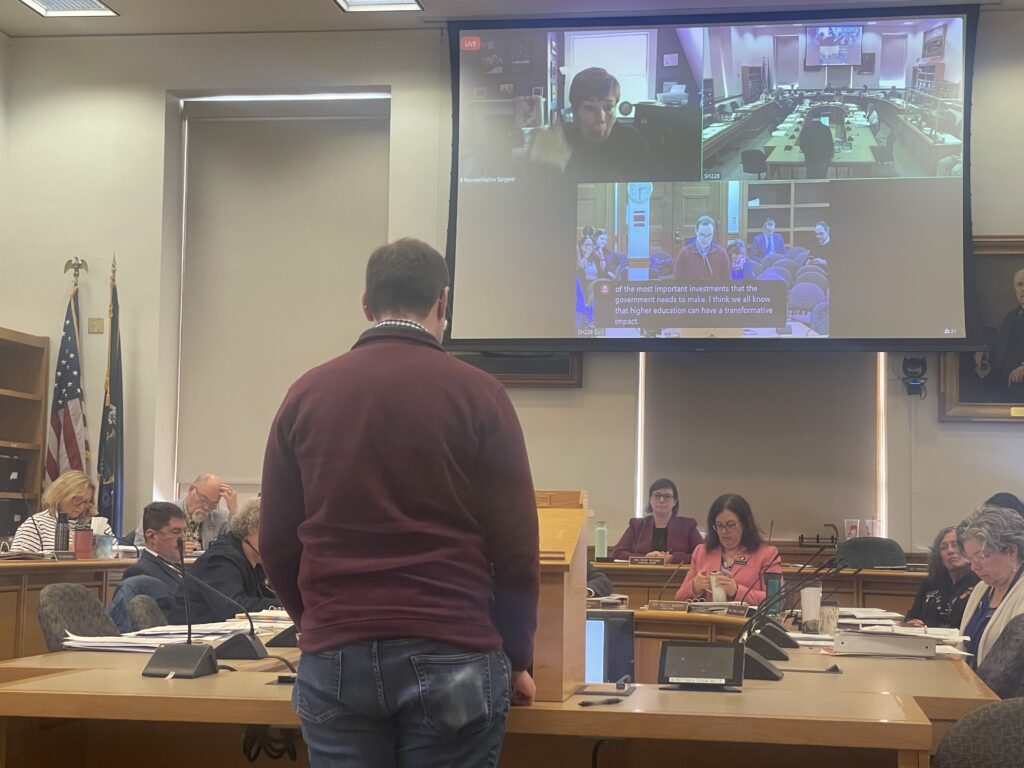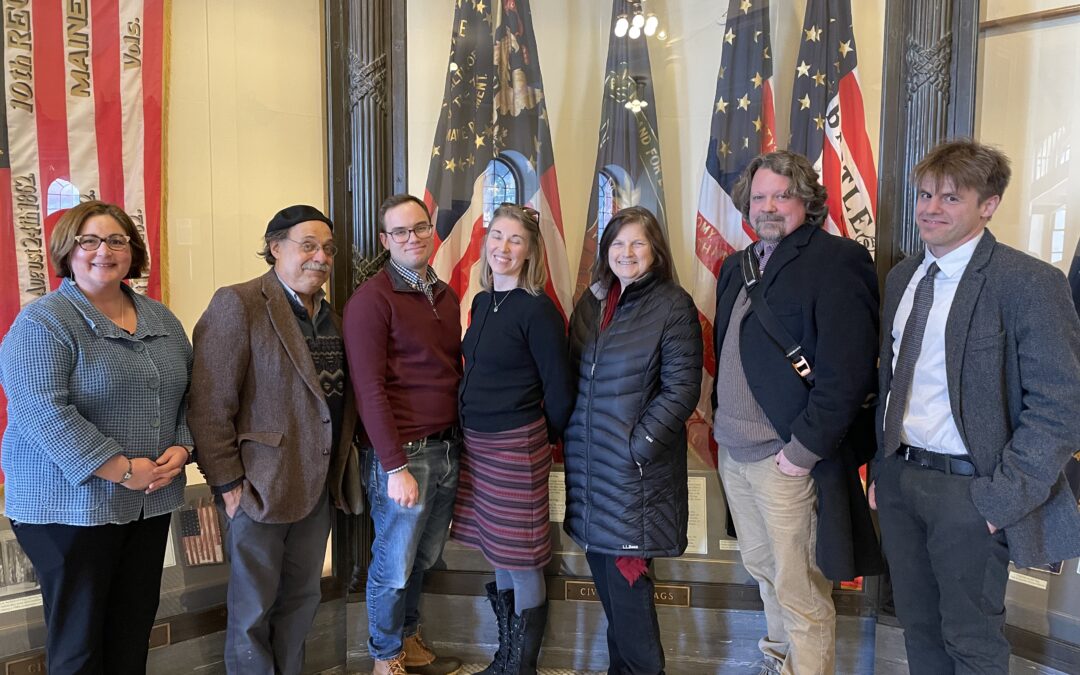Augusta—In a packed room on Friday, members of the Maine Education Association (MEA) from the University of Maine System (UMS) participated in nearly five hours of testimony before the Legislature’s joint session of the Education and Cultural Affairs Committee and the Appropriations Committee. Their message was clear: it is past time for the state to address the chronic underfunding of the University of Maine System.

Staff members from all three bargaining units at the University of Maine System—the Associated Faculties of the Universities of Maine (AFUM), the Universities of Maine Professional Staff Association (UPMSA), and the Associated COLT Staff of the Universities of Maine (ACSUM)—testified to request increased funding for the University of Maine System (UMS). They cited deteriorating facilities, departmental budgeting constraints, and worsening working conditions as critical issues that need to be addressed.

While many praised the proposed 4% increase, they also emphasized that it is not sufficient to make the necessary investments to maintain success and provide Maine with the future workforce critical for economic growth. Staff warned that the proposed increase will not address systemic issues in the University of Maine System, such as deferred maintenance, staffing shortages, and low employee pay.
Adjusting for inflation, the state appropriation to the University of Maine System (UMS) has fallen by 10% since 2008, and in 2022, it was the lowest amount ever appropriated to the system. Staff members report that, as a result, many facilities and buildings throughout the system have foregone maintenance and are deteriorating.
The impact of foregone maintenance was especially evident in the testimony of Josh Kelly, Associate Professor of Biochemistry at the University of Maine. Describing his experience, he said, “The HVAC system fails multiple times a year, leading to failed experiments and uninhabitable labs. Temperature swings and steam leaks have damaged microscopes worth upwards of a million dollars and destroyed ultracold freezers, leading to tens of thousands in equipment damage and incalculable research losses.”
Michael Cauvel, Associate Professor of Economics at the University of Southern Maine, highlighted another critical issue during his testimony. He pointed out that with only 36% of Mainers holding a bachelor’s degree, Maine trails behind all other New England states. “This puts us at a serious competitive disadvantage relative to our neighbors,” he noted. “This makes it difficult to attract and retain dynamic businesses that require a pool of educated workers.”

Staff members emphasized that Maine has a unique opportunity to invest in its future workforce. They argued that higher education is a critical investment and one of the biggest engines of economic growth. This investment, they said, could be transformative for the state of Maine both economically and socially.




